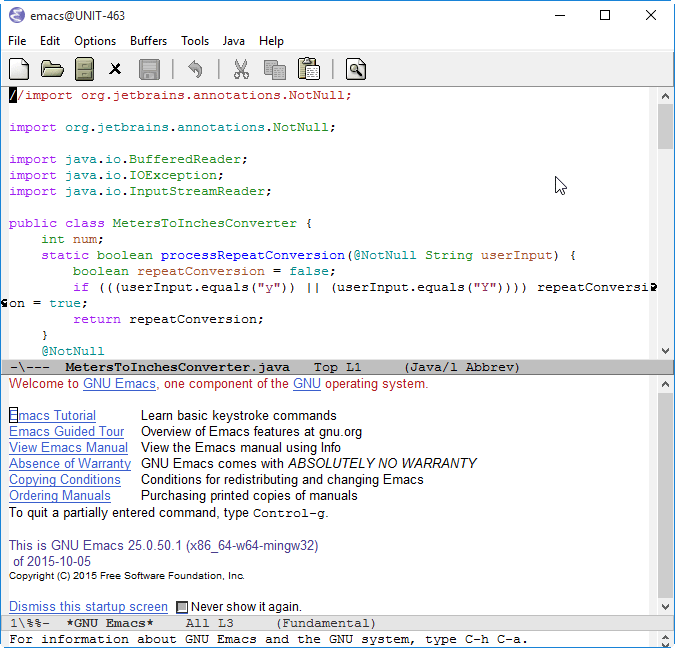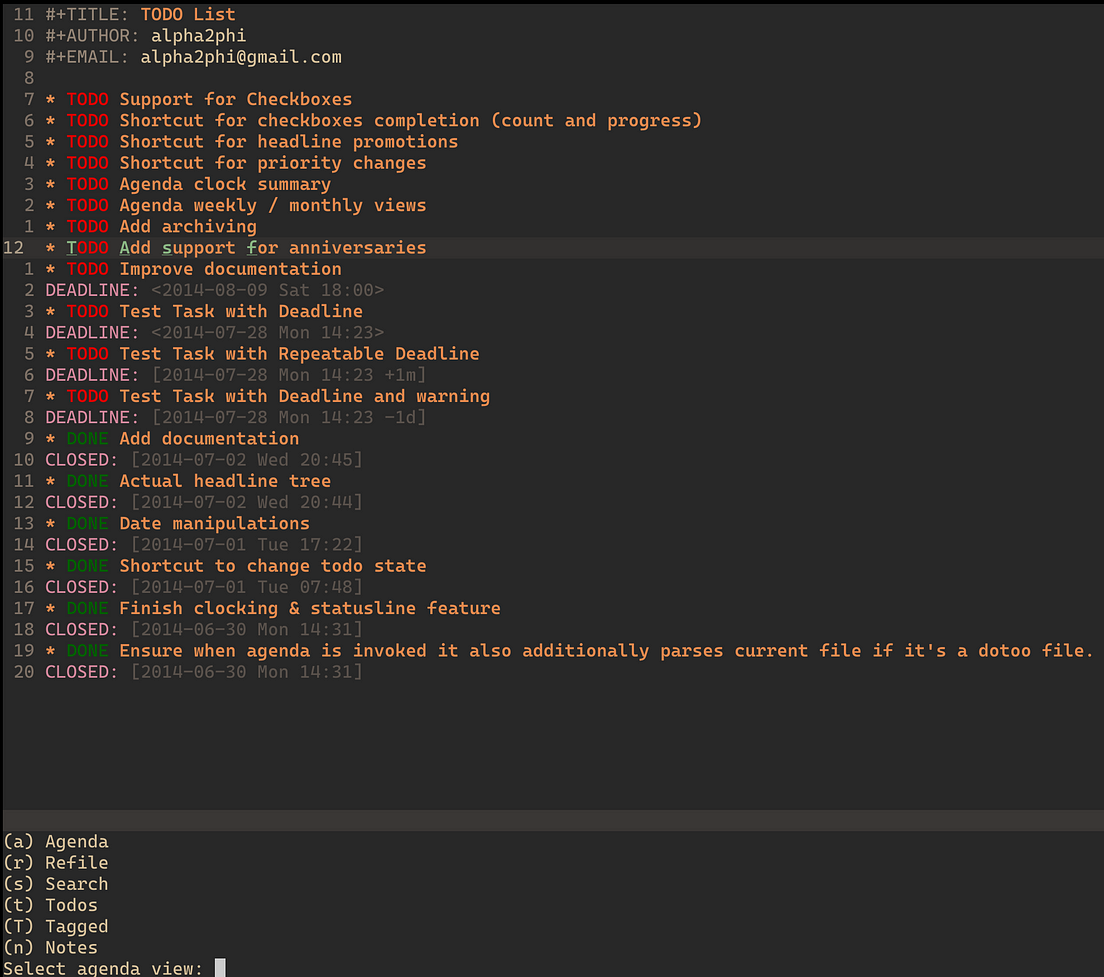

In this case, our second command is pwd, which will print the directory we’re currently in ( pwd is short for Print Working Directory). cmd1 || cmd2 will run cmd1, then run cmd2 if cmd1 returned an error. We could just leave it there, but in the rare case that I’m searching outside of a Git repo I don’t want this command to return an error.īash (like most shells) allows us to recover from errors using the || operator. If we’re in a Git repo we can use git rev-parse -show-toplevel to get the repo’s root directory, but this command will return an error if we’re not in a Git repo. rg will default to searching the current directory, but I want it to check the entire current Git repo (I want to see results from my whole project, not just the directory of the file I happen to have open). The final argument we supply to rg is the directory to search. In this command, we start with an empty regular expression ( ''), which we will fill in whenever we call M-x grep-find. e tells ripgrep that the next argument should be regular expression to search for. This is important because Emacs will only let us jump to a match if we have the complete file path and line number all together. no-heading tells ripgrep to display the file name on each line, rather than grouping matches by file and only displaying the filename at the top of each group. H tells ripgrep to display the file name for each match. n tells ripgrep to display the line number for each match (the line in the file on which the match appeared). To start, we’re calling rg (this was our main goal: to call ripgrep). The value that we’re passing is this complicated object '("rg -n -H -no-heading -e '' $(git rev-parse -show-toplevel || pwd)".

At a high level, we’re using the grep-apply-setting function to tell Emacs what command should be run when we run M-x grep-find. There’s a lot going on here, so let’s unpack it. Hit Z Z to write all the changes to their respective files, or Z Q to abort the search and replace.'("rg -n -H -no-heading -e '' $(git rev-parse -show-toplevel || pwd)".You can also SPC : wgrep or M-x wgrep to look at the other advanced wgrep actions. Go through all the lines in the search results to check if the changes are as expected. g z z for evil-mc multiple cursors? No worries-just be careful of the readonly region of filenames on the left.Īt this stage nothing has been written to the files yet, so you can still undo easily. C-x SPC or C-v to do a rectangle/visual block edit? Go for it. M-% or C-M-% to do a regular Emacs query replace? Sure. You can also edit the buffer manually using any technique you want. Doom relies heavily on evil’s vim emulation, so the smoothest option for me was to type :%s/foo/bar/g to preview the changes and hitting RET to apply. Use your preferred method of search and replace in a single file. Embark is smart enough to know that you’re looking at grep search results, so it will export to a new buffer in grep-modeĬ-c C-p to run wgrep-change-to-wgrep-mode to make the search results writable. This Embark command is like a context menu for what you’re currently looking at.Į to run embark-export, which exports what you’re looking at into a new buffer. ivy-occur for turning ivy results into a buffer and wgrep-change-to-wgrep-mode to make it writable).Ĭ- to run embark-act. This calls +ivy/woccur, which is equivalent to pressing C-c C-o C-c C-p (i.e. This step depends on which completion engine you’ve set up for Doom.Ĭ-c C-e to transform the search results into a wgrep or writable grep buffer.

This doesn’t have to be exactly what you want to replace it just needs to be specific enough to get the right results into view.

I’ve set ivy-more-chars-alist to not return any results until at least 3 characters have been entered 3, otherwise counsel can be a little overzealous in returning results. This is what you would normally use to search strings or regular expressions 2 within your project. If you’re making a large change, maybe a git commit would give you a little extra insurance. Make sure you’re in the right project and all your open buffers/files are saved.


 0 kommentar(er)
0 kommentar(er)
